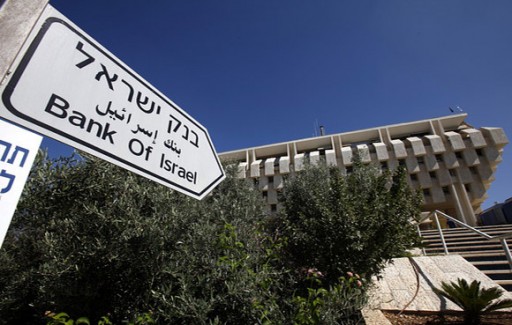
Tel Aviv – Israel’s central bank said interest rates were likely to stay at record lows for longer than expected, given a weaker economic outlook that has been further clouded by an upsurge in Palestinian-Israeli violence.
The bank held its benchmark interest rate at 0.1 percent for the eighth month running. With deflation entrenched, a strong shekel currency weighing on exports and many other central banks also keeping policy ultra-loose, the Israeli bank said rates would not rise for the foreseeable future.
“The monetary committee’s assessment is that … policy will remain accommodative for a considerable time,” it said in a statement.
All 14 economists polled by Reuters had forecast no rate change.
Israel has been in a deflation trend for a year – inflation stood at -0.5 percent in September – and well below an annual target of 1-3 percent.
Bank of Israel Governor Karnit Flug has said an interest rate of 0.1 percent is expansionary but that if policymakers see a worsening of the situation they would ease monetary policy further.
The shekel inched up to 3.866 per dollar after Monday’s rate decision from 3.89 beforehand.
A nearly 6 percent appreciation of the shekel in terms of the nominal effective exchange rate this year “is weighing on growth of exports and the tradeable sector and is delaying the return of inflation to within the target range,” the bank said.
At last month’s meeting, Bank of Israel economists forecast the key interest rate would gradually start rising from the second quarter of next year.
The bank at the same time cut its forecasts for 2015 and 2016 economic growth, both by 0.4 percentage points, to 2.6 percent and 3.3 percent respectively.
Since then tensions over a holy site in Jerusalem’s Old City sacred to both Muslims and Jews have escalated into one of the worst waves of street violence in Israel and the West Bank in decades.
The bank said on Monday the unrest could affect the economy.
“Past experience shows that the wave of violence may have an effect on private consumption and on tourism, but that if it does not last long, the effect is expected to be moderate,” it said.
Israel is also facing pressure from an expected interest rate hike by the U.S. Federal Reserve in coming months, which would weigh on emerging economies.
As reported by Vos Iz Neias
